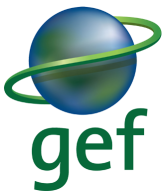The programme is funded by the Global Environment Facility (GEF), implemented by the United Nations Development Programme (UNDP) and executed by the United Nations Office for Project Services (UNOPS).
About the GEF
About UNDP
SGP AT THE GLOBAL LEVEL
Central Programme Management Team
A small team in headquarters provides global oversight to SGP's global operations and decentralized country programmes. CPMT comprises a Global Manager, a Deputy Global Manager, Programme Advisors on the GEF focal areas, a Programme Specialist for knowledge management, and 2 Programme Associates. Together they provide global supervision and day-to-day programmatic and operational guidance to over 125 participating countries.
The SGP Global Manager and Deputy Global Manager are responsible for overall SGP management, strategic direction, and policy development. CPMT staff are responsible for regional coordination and support country programmes on substantive and technical matters related to focal areas and thematic directions, capacity and partnership development, knowledge management and communications, and monitoring and evaluation.
UNDP Communities Cluster (TBD)
Since 2011, the most mature SGP country programmes have upgraded to full size projects and are managed by UNDP's Communities, Livelihoods and Markets cluster. These countries are: Brazil, Bolivia, Costa Rica, Ecuador, India, Kenya, Mexico, Pakistan and the Phillipines.
SGP AT THE COUNTRY LEVEL
At the national and local levels, SGP operates in a decentralized and country-driven manner through country programme teams composed of a National Coordinator (NC), often a Programme Assistant (PA), and a National Steering Committee (NSC) in each participating country. SGP country programmes are hosted primarily by UNDP Country Offices, but also by national host institutions (NHI).
National Country Teams
Each country programme has a locally recruited National Coordinator (NC), and often a Programme Assistant (PA) who are responsible for managing country programme implementation and for ensuring that grants and projects meet GEF and SGP criteria. The NC also serves as secretary to the NSC and acts as liaison with the local government, UNDP and all other key stakeholders at the local level.
Country Programme Strategies
Each participating country develops a country programme strategy, which adapts the SGP global strategic framework to specific country conditions. SGP country strategies take into account existing national environmental strategies and plans, as well as those relating to national development and poverty eradication.
Through the CPS, the country is able to put emphasis on certain thematic and geographic areas to ensure synergy and impact, as well as to facilitate programme administration.
National Steering Committee
All SGP country programmes have a voluntary National Steering Committee (NSC), which is the central element of SGP and provides the major substantive contribution to and oversight of the programme. The NSC is comprised a majority of civil society organizations, as well as representatives of the government, UNDP, the academia, indigenous peoples' organizations, the private sector and the media.
The NSC helps develop the Country Programme Strategy (CPS), considers whether proposals for grants are feasible and meet SGP criteria, and what kind of technical support is needed for implementation. It is also responsible for the final approval of grants, undertaking monitoring and evaluation visits to the projects, providing advice, ensuring proper monitoring and evaluation, helping extract, share and replicate successful SGP projects and practice and promoting SGP at the national and international level.
Established in 1991, the Global Environment Facility (GEF) unites 182 member governments — in partnership with international institutions, civil society organizations (CSOs), and the private sector — to address global environmental issues. An independent financial organization, the GEF provides grants to developing countries and countries with economies in transition for projects related to biodiversity, climate change, international waters, land degradation, the ozone layer, and persistent organic pollutants. These projects benefit the global environment, linking local, national, and global environmental challenges and promoting sustainable livelihoods. Today the GEF is the largest funder of projects to improve the global environment.
Learn more about the GEF.
Since 1966, the United Nations Development Programme (UNDP) has been partnering with people at all levels of society to help build nations that can withstand crisis and drive and sustain the kind of growth that improves the quality of life for everyone. On the ground in 177 countries and territories, UNDP offers global perspective and local insight to help empower lives and build resilient nations.
Learn more about UNDP.




